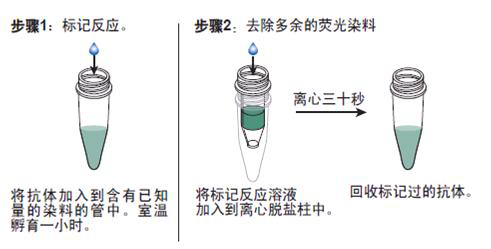
|

| 产地 | 进口、国产 |
| 品牌 | 上海莼试 |
| 保存条件 | Store at -20 °C |
| 货号 | CS11274 |
| 应用范围 | WB=1:100-500 ELISA=1:500-1000 IHC-P=1:100-500 IHC-F=1:100-500 ICC=1:100-500 IF=1:100-500 |
| CAS编号 | |
| 抗体名 | Anti-SUMF1 |
| 克隆性 | |
| 靶点 | 详见说明书 |
| 适应物种 | 详见说明书 |
| 形态 | 详见说明书 |
| 宿主 | 详见说明书 |
| 亚型 | IgG |
| 标识物 | 详见说明书 |
| 浓度 | 1mg/1ml% |
| 免疫原 | KLH conjugated synthetic peptide derived from human SUMF1 |
产品订购信息:
英文名称 Anti-SUMF1
中文名称 硫酸酯酶修饰因子1抗体规格
别 名 MGC150436; AAPA3037; C alpha formylglycine generating enzyme 1; C-alpha-formylglycine-generating enzyme 1; FGE; FGly generating enzyme; MGC131853; Sulfatase modifying factor 1 [Precursor]; Sulfatase-modifying factor 1; SUMF1; SUMF1_HUMAN; UNQ3037.


浓 度 1mg/1ml
规 格 0.2ml/200μg
抗体来源 Rabbit
克隆类型 polyclonal
交叉反应 Human, Mouse, Rat, Dog, Pig, Cow, Horse, Rabbit, Sheep
产品类型 一抗
研究领域 细胞生物 发育生物学 神经生物学 信号转导 干细胞
蛋白分子量 predicted molecular weight: 37kDa
性 状 Lyophilized or Liquid
免 疫 原 KLH conjugated synthetic peptide derived from human SUMF1
亚 型 IgG
纯化方法 affinity purified by Protein A
储 存 液 Preservative: 15mM Sodium Azide, Constituents: 1% BSA, 0.01M PBS, pH 7.4
硫酸酯酶修饰因子1抗体规格 产品应用 WB=1:100-500 ELISA=1:500-1000 IHC-P=1:100-500 IHC-F=1:100-500 ICC=1:100-500 IF=1:100-500
(石蜡切片需做抗原修复)
not yet tested in other applications.
optimal dilutions/concentrations should be determined by the end user.
保存条件 Store at -20 °C for one year. Avoid repeated freeze/thaw cycles. The lyophilized antibody is stable at room temperature for at least one month and for greater than a year when kept at -20°C. When reconstituted in sterile pH 7.4 0.01M PBS or diluent of antibody the antibody is stable for at least two weeks at 2-4 °C.
Important Note This product as supplied is intended for research use only, not for use in human, therapeutic or diagnostic applications.
产品介绍 SUMF1 is a 374 amino acid alternatively spliced protein that localizes to the lumen of the endoplasmic reticulum and belongs to the sulfatase-modifying factor family. Expressed ubiquitously with highest expression in liver, kidney and pancreas, SUMF1 exists as either a monomer, a homodimer or a heterodimer (with SUMF2) and functions to oxidize sulfatase cysteine residues to an active FGIy residue, thereby playing an important role in sulfatase activity. Defects in the gene encoding SUMF1 are the cause of multiple sulfatase deficiency (MSD), a heterogeneous disorder characterized by metachromatic leukodystrophy, mucopolysaccharidosis, chondrodysplasia punctata, hydrocephalus, ichthyosis, neurologic deterioration and developmental delay.
Function : Using molecular oxygen and an unidentified reducing agent, oxidizes a cysteine residue in the substrate sulfatase to an active site 3-oxoalanine residue, which is also called C(alpha)-formylglycine. Known substrates include GALNS, ARSA, STS and ARSE.
Subunit : Monomer, homodimer and heterodimer with SUMF2.
Subcellular Location : Endoplasmic reticulum lumen.
Tissue Specificity : Ubiquitous. Highly expressed in kidney, pancreas and liver. Detected at lower levels in leukocytes, lung, placenta, small intestine, skeletal muscle and heart.
Post-translational modifications : N-glycosylated. Contains high-mannose-type oligosaccharides.
DISEASE : Defects in SUMF1 are the cause of multiple sulfatase deficiency (MSD) [MIM:272200]. MSD is a clinically and biochemically heterogeneous disorder caused by the simultaneous impairment of all sulfatases, due to defective post-translational modification and activation. It combines features of individual sulfatase deficiencies such as metachromatic leukodystrophy, mucopolysaccharidosis, chondrodysplasia punctata, hydrocephalus, ichthyosis, neurologic deterioration and developmental delay. Inheritance is autosomal recessive.
Similarity : Belongs to the sulfatase-modifying factor family.
Database links : UniProtKB/Swiss-Prot: Q8NBK3.3

Resistin 抵抗素抗原Multi-class antibodies规格: 0.5mg
Anti-phospho-Bax(Ser184) 磷酸化Bax抗体Multi-class antibodies规格: 0.1ml
Rhesus antibody Rh PHLP 抑制基因PHLPP抗体 规格 0.2ml
Keratin10 浓缩液 0.1ml 进口分装
UVRAG 英文名称: 抑制基因UVRAG抗体 0.2ml
Chorein/VPS13A 英文名称: 液泡蛋白分选蛋白VPS13A抗体 0.1ml
Anti-phospho-Bax(Ser184) 磷酸化Bax抗体Multi-class antibodies规格: 0.1ml
Anti-Phospho-FAK (Tyr925) /FITC 荧光素标记兔抗人、大、小鼠磷酸化粘着斑激酶抗体IgGMulti-class antibodies规格: 0.2ml
Rabbit Anti-chicken IgG/Gold 金标记兔抗鸡IgG(10nm/15nm)Multi-class antibodies规格: 0.5ml
角质形成细胞生长因子受体/纤维母细胞生长因子-7抗体 Anti- KGF/FGF-7 0.1ml
Rabbit Anti-Goat IgG/PE PE标记的兔抗羊IgG 0.1ml
FOXRED1 英文名称: 单跨膜蛋白FOXRED1抗体 0.2ml
Rhesus antibody Rh Phospho-Syk (Ty*3) 磷酸化非受体型酪氨酸蛋白激酶抗体 规格 0.1ml
Rabbit Anti-chicken IgG/Gold 金标记兔抗鸡IgG(10nm/15nm)Multi-class antibodies规格: 0.5ml
5HT2B Receptor 英文名称: 5-羟色胺受体2B抗体 0.2ml
EP4 英文名称: 素E受体蛋白4抗体 0.1ml
Toll样受体5抗体 Anti-TLR5/CD285 0.1ml
Anti-TNFSF4/CD252/FITC 荧光素标记坏死因子配体超家族成员4抗体IgGMulti-class antibodies规格: 0.2ml
Rhesus antibody Rh phospho-JunD(Ser255) 磷酸化活化蛋白激酶D抗体 规格 0.1ml
PI3K 磷脂酰肌醇激酶(抗原)Multi-class antibodies规格: 0.5mg
Ishikawa, 人细胞系
NRL1 黑化大家鼠肺成纤维样细胞
GHR Others Rat 大鼠 GHR / Growth Hormone Receptor 人细胞裂解液 (阳性对照)
大额牛肺细胞;BFR-L1
肾小管上皮细胞Many types of cells包装:5 × 105次方(1ml)
人细胞;SF767 大鼠腮腺细胞完全培养基 100mL
615小鼠状肺腺株;P615
人结膜纤维原细胞(HConF)(5×105 )
CM-M027小鼠食管上皮细胞完全培养基100mL
小鼠树突状细胞细胞;DCS 小鼠上皮细胞完全培养基 100mL
小鼠皮层神经胶质细胞(EGFP标记) Mouse
WFIKKN2 Others Human 人 WFIKKN2 / GASP-1 人细胞裂解液 (阳性对照)
硫酸酯酶修饰因子1抗体规格 Ishikawa, 人细胞系
NRL1 黑化大家鼠肺成纤维样细胞
GHR Others Rat 大鼠 GHR / Growth Hormone Receptor 人细胞裂解液 (阳性对照)
大额牛肺细胞;BFR-L1
肾小管上皮细胞Many types of cells包装:5 × 105次方(1ml)
人细胞;SF767 大鼠腮腺细胞完全培养基 100mL

抗体的生物素化标记实验要点:
1. 硫酸酯酶修饰因子1抗体规格 如在反应混合液中有叠氮钠或游离氨基存在,会抑制标记反应。因此,蛋白质在反应前要对 0.1mol/L碳酸氢钠缓冲液或0.5mol/L硼酸缓冲液充分透析;
2.所用的NHSB及待生物素化蛋白质之间的分子比按蛋白质表面的ε-氨基的密度会有所不同,选择不当则影响标记的效率,应先用几个不同的分子比来筛选最适条件;
3.用NHSB量过量也是不利的,抗原的结合位点可能因此被封闭,导致抗体失活;
4.由于抗体的氨基不易接近可能造成生物素化不足,此时可加入去污剂如 Triton x-100, Tween20等;
5.当游离ε-氨基(赖氨酸残基的氨基)存在于抗体的抗原结合位点时,或位于酶的催化位点时,生物素化会降低或损伤抗体蛋白的结合力或活性;
6.生物素还可能与不同的功能基团,如羰基、氨基、巯基、异咪唑基及苯酚基,也可与糖基共价结合;
7.交联反应后,应充分透析,否则,残余的生物素会对生物素化抗体与亲和素的结合产生竞争作用;
8.在细胞的荧光标记实验中,中和亲和素的本底低,但由于链霉亲和素含有少量正电荷,故对某些细胞可导致高本底。
抗体的鉴定:
1)硫酸酯酶修饰因子1抗体规格 抗体的效价鉴定:不管是用于诊断还是用于,制备抗体的目的都是要求较高效价。不同的抗原制备的抗体,要求的效价不一。鉴定效价的方法很多,包括有试管凝集反应,琼脂扩散试验,酶联免疫吸附试验等。常用的抗原所制备的抗体一般都有约成的鉴定效价的方法,以资比较。如制备抗抗体的效价,一般就采用琼脂扩散试验来鉴定。
2)抗体的特异性鉴定:抗体的特异性是指与相应抗原或近似抗原物质的识别能力。抗体的特异性高,它的识别能力就强。衡量特异性通常以交叉反应率来表示。交叉反应率可用竞争抑制试验测定。以不同浓度抗原和近似抗原分别做竞争抑制曲线,计算各自的结合率,求出各自在IC50时的浓度,并按公式计算交叉反应率。
如果所用抗原浓度IC50浓度为pg/管,而一些近似抗原物质的IC50浓度几乎是无穷大时,表示这一抗血清与其他抗原物质的交叉反应率近似为0,即该血清的特异性较好。
3)抗体亲和力:是指抗体和抗原结合的牢固程度。亲和力的高低是由抗原分子的大小,抗体分子的结合位点与抗原决定簇之间立体构型的合适度决定的。有助于维持抗原抗体复合物稳定的分子间力有氢键,疏水键,侧链相反电荷基因的库仑力,范德华力和空间斥力。亲和力常以亲和常数K表示,K的单位是L/mol。抗体亲和力的测定对抗体的筛选,确定抗体的用途,验证抗体的均一性等均有重要意义。